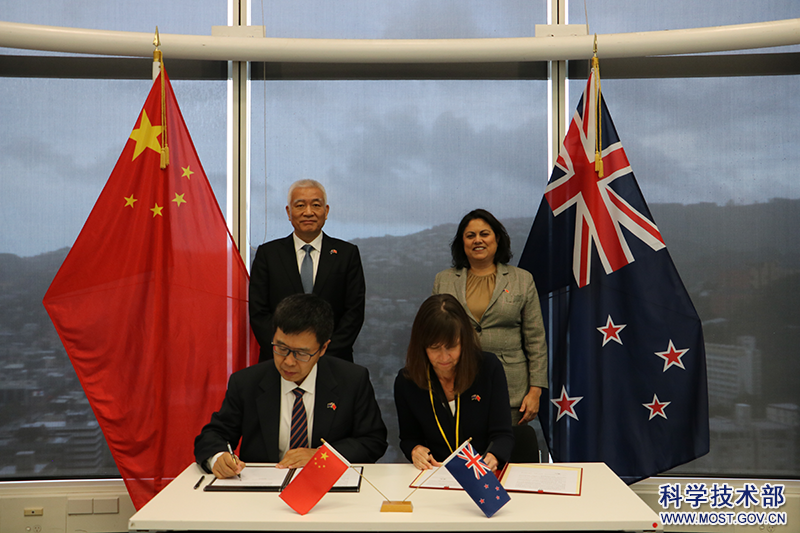
Wang Zhigang?(L,?standing), China's minister of science and technology, attended the 6th China-New Zealand Joint Commission Meeting on Science and Technology Cooperation in Wellington, New Zealand on May 30, and met with New Zealand's Minister of Research, Science and Innovation Ayesha Verrall?(R,?standing). The two sides agreed to deepen bilateral cooperation in science and technology.?(PHOTO:?MOST)
By?LIN?Yuchen
Wang Zhigang, China's minister of science and technology, attended the 6th China-New Zealand Joint Commission Meeting on Science and Technology Cooperation in Wellington, New Zealand on May 30, and met with New Zealand's Minister of Research, Science and Innovation Ayesha Verrall. The two ministers agreed to deepen bilateral cooperation in science and technology.
Wang said that science and technology are one of the key areas of cooperation between China and New Zealand, and the convening of this joint commission meeting is a concrete move to implement the previous consensus reached between the leaders of both countries.
Wang affirmed the fruitful achievements in cooperation, joint research projects, platform construction and personnel exchange in cooperation with New Zealand since the two countries signed an agreement in 1987 on governmental cooperation in science and technology. He said that in the future, China is willing to continue to work with New Zealand to provide more support to universities, research institutions and enterprises, and create a good cooperation environment, so that the mutual cooperation can provide more sci-tech solutions for the two countries, as well as responses to globally shared challenges.
Verrall endorsed the cooperation proposals provided by Wang, saying that New Zealand regards China as an important science and technology innovation partner, and confirmed mutual commitment to this strong relationship.
"We have significant mutual research interests, particularly in food, environmental and health sciences. New Zealand and Chinese scientists have been cooperating for more than 40 years, and each year we jointly fund research projects that benefit our two countries," said Verrall.
The trio will conduct a series of experiments in fields such as life science, fluid physics, combustion science and materials science. Notably, this is the first time that fruit flies have been taken on a Chinese space mission as experimental subjects. What made scientists choose fruit flies? What experiment will they undergo?
